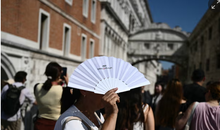
 Flash News
Flash News
Korça/ 40-year-old man jumps from fifth floor balcony, in critical condition
Croatia restores compulsory military service
Illegal constructions in Theth, Manja demands disciplinary proceedings against prosecutor Elsa Gjeli
Details from the murder of Renis Dobra, the perpetrators came with 2 Range Rover cars from Rrëshen
The Supreme Court left him in prison, Meta addresses the 'Constitution'
Lubonja: I was friends with Rama the artist, he betrayed his ideas

The largest French weekly, with a center-left tendency, Le Nouvel Obs published a very long article about what it calls the Albanian mafia. Special Envoy Marie Vaton aimed to outline the creation of a new migrant detention camp in Albania, as part of an agreement between Italy and Albania.
In this article, she also quoted the publicist and writer Fatos Lubonja, whose long interview she later published on the online page of Le Nouvel Obs. You can find it in full, translated from French, below.
From Marie Vaton "Le nouvel Obs"
Fatos Lubonja is a writer and critic, born in Tirana in 1951, who lives between the capital of Albania and Pisa, in Italy. He is an important voice in the intellectual and literary scene of this small Balkan country, known for his harsh criticism of totalitarianism and his fierce fight for democracy and human rights, especially with his magazine « The Effort', founded in 1994. His work explores themes of oppression and freedom, reflecting his personal experiences as a political prisoner under the communist regime of dictator Enver Hoxha for sixteen years.
In recent years, he has also devoted himself to art through installations that are mainly inspired by his memories of his experience in captivity. He is, among other things, the author (with Ardian Isufi) of the Postbllok Memorial (or Check-Point memorial) for the communist period, located on the main boulevard of Tirana. For "Le Nouvel Obs", he analyzes the disputed agreement signed in November 2023 between Rome and Tirana for the externalization of asylum requests from Italy.
Your country, Albania, has just received the first group of displaced persons caught at sea by the Italian authorities. These sixteen men have been transferred to the Shengjin port center where their files will be examined. This is the first time that a member state of the European Union (EU) externalizes its asylum requests to a third country. Why did Tirana agree to sign this agreement in November 2023 with Giorgia Meloni?
Fatos Lubonja: The Italian Prime Minister claims that this protocol will have a prohibitive effect on candidates for emigration. I don't know if this will discourage them, but it will certainly contribute to their invisibility, since these prisons are closed to access and fully controlled by the Italian police. The only thing certain is that all this will be extremely expensive for Italy: this first transfer has cost at least 250,000 euros, which means 15,000 euros per migrant.
Duhet kuptuar se kjo marrëveshje është negociuar në fshehtësi. Në Shqipëri, askush nuk ishte në dijeni. Por, edhe sikur të ishim, nuk do të kishte ndryshuar asgjë, pasi nuk ka asnjë mënyrë për të kundërshtuar vendimet që merr qeveria. Këtu, opozita shqiptare është reduktuar në minimum. Edhe kur ajo denoncon abuzimet e kryeministrit tonë, Edi Rama, [në pushtet që nga viti 2013], regjimin e tij autoritar oligarkik dhe propagandistik, zëri i saj nuk ka peshë në skenën gjeopolitike ndërkombëtare.
Eshtë edhe më e paqartë se çfarë ka fituar Shqipëria nga kjo?
Shumë gjëra. Së pari, Shqipëria po pret që prej dhjetë vjetësh që kandidatura e saj për anëtarësim në Bashkimin Evropian të shqyrtohet. Prandaj është e qartë se kryeministri ynë Edi Rama po përpiqet të luajë rolin e nxënësit të mirë të Ballkanit duke ndihmuar Bashkimin Evropian ne problemin që ai ka me emigracionin. Ai vetë kishte folur për “solidaritetin evropian” për të justifikuar nënshkrimin e kësaj marrëveshjeje me Giorgia Melonin. Për më tepër, rastësi apo jo e kalendarit, më 15 tetor, ditën para mbërritjes së migrantëve të parë të transferuar në territorin shqiptar, Shqipëria hapi zyrtarisht në Bruksel kapitullin e parë të negociatave të saj për anëtarësim. Duhet theksuar se nuk është hera e parë që vendi ynë luan një rol në politikën migratore evropiane: në vitin 2019, ne ishim gjithashtu të parët që pranuam në territorin tonë një operacion të përbashkët të Frontex, agjencisë evropiane të kufijve dhe rojeve bregdetare, jashtë zonës së BE-së, për të forcuar menaxhimin e kufijve të saj.
Në kronikat tuaja të publikuara në media franceze si «Courrier des Balkans», ju denonconi hipokrizinë e këtij protokolli të negociuar pas shpinës të Komisionit Evropian, por që, që atëherë, është përshëndetur nga presidentja e tij, Ursula von der Leyen, si dhe nga rreth pesëmbëdhjetë vende anëtarë të BE-së, si Austria apo Danimarka, dhe më së fundi, Franca, përmes zërit të ministrit të saj të Brendshëm Bruno Retailleau.
Pikërisht. Ekziston një sistem standardesh të dyfishta që unë e denoncoj ashpër. Nga njëra anë, kemi Bashkimin Evropian që u kërkon vendeve kandidate që shpresojnë të antarësohen programe reformash për të rregulluar legjislacionin, standardet dhe praktikat e tyre, sipas vlerave demokratike të vetë Unionit.
Nga ana tjetër, BE vijon që prej vitit 2015 të lidhë partneritete financiare me vende të treta jo-demokratike si Libia, Maroku, Turqia, Tunizia për të forcuar kontrollin e flukseve migratore dhe së fundi, për të externalizuar kufijtë e saj, ndërsa mbyll sytë për shkeljet e të drejtave të njeriut që kjo shkakton.
Dhe çfarë mendoni për mbikëqyrjen nga Zyra e Lartë të Komisionerit të Kombeve të Bashkuara për Refugjatët? A nuk është kjo një garanci e mjaftueshme sipas jush?
There will be observation missions by human rights associations, especially in the first months. What worries me is their presence in the long term. This agreement is envisaged for five years. I doubt there will be any violations for such a long time. What must be understood is that Albania was not chosen by chance. We are a country without unions, without a democratic system, plagued by corruption and drug trafficking. We have passed from Enver Hoxha's dictatorship to an increasingly authoritarian oligarchic system, modeled after Vladimir Putin. For Western Europe and the United States, it is quite practical to negotiate with an authoritarian state that caters to their interests without worrying too much about what happens inside. Edi Rama's Albania is a clientelistic model where all partners are kings as long as they pay and allow him to continue his system: that of holding power in collaboration with organized crime. We have become subcontractors for the West: until now we handled your waste, now your migrants.
You yourself know Prime Minister Edi Rama well, who was one of your close friends and a member of your literary magazine "Perpjekja", founded in Tirana in 1994, three years after you got out of prison.
It is true. At that time, he had returned from Paris, where he had studied plastic arts. He had a saying: "Intellectuals seek the truth, while politicians seek votes." I was friends with him when he sought the truth. But when he became a politician, he betrayed all his ideas. He, who became famous in 2003 with an extensive artistic project that included the bright color repainting of all the facades of the center of Tirana when he was mayor, is now the founder of the destruction of all our historical monuments, which he replaces with ugly buildings and phallic towers, the construction of which serves to launder drug money. But all this, Giorgia Meloni, and before her Matteo Renzi [Prime Minister of Italy from 2014 to 2016], or Donald Trump [President of the United States from 2017 to 2021, who is seeking a new term in the White House] , his new friends, do not see them. He has fabricated an iconic character, a bit of an artist, a bit of everything, that pretends to be progressive, almost "woke" sometimes, in order to please and why not, to entertain Westerners.
This is ironic, because at the same time organized crime is thriving and more than 700,000 of the 2.8 million Albanians have fled the country to immigrate en masse to Western and Northern Europe. It reminds me of Guy Debord's prophecy: "If in a system, the illusion with its spectacular forms reaches the point where it prevails over reality, this shows that the social order is in crisis of legitimacy."/ Taken from Lapsi.al
Latest news


Malltezi: SPAK admits, we are in a process that began with Balla's false report
2025-07-10 22:34:16

Si të çliroheni nga bllokimet emocionale me anë të ushtrimeve
2025-07-10 21:57:24

Lala: Veliaj wanted to return as mayor
2025-07-10 21:40:46

VIDEO/ Brawl in Bolivian parliament, deputies physically clash
2025-07-10 21:20:30


Albania experienced one of the longest heat waves of the last decade
2025-07-10 21:01:09

The Government approves new procedures for declaring residence in e-Albania
2025-07-10 20:39:32

Koka: Northerners will not forget Edi Rama's racist operation in Theth
2025-07-10 20:18:24
The 3 zodiac signs that will be most affected by the 'Full Moon' of July 10
2025-07-10 20:04:49
New director of the National Center of Cinematography appointed
2025-07-10 19:51:12
Korça/ 40-year-old man jumps from fifth floor balcony, in critical condition
2025-07-10 19:40:19
'Tired Woman'/ The Syndrome That Affects Thousands of Women Every Day
2025-07-10 19:34:02
Jane Birkin's original Hermès bag sells for $10 million
2025-07-10 19:26:22

Britain-Ukraine agreement signed for 5,000 Thales missiles
2025-07-10 19:00:25
Fire in Zvërnec, flames endanger two hotels
2025-07-10 18:57:19
Croatia restores compulsory military service
2025-07-10 18:39:01
Spahia: The great truth of the strong accusation of the residents of Theth
2025-07-10 18:35:07


The Supreme Court left him in prison, Meta addresses the 'Constitution'
2025-07-10 17:57:21
New punishment with 'new' regulations
2025-07-10 17:54:46
EU translator fired over fears for Zelenskyy's safety
2025-07-10 17:45:37
'You are a policeman, but not God, take my soul', protest for Agon Zejnullahu
2025-07-10 17:41:21


Video/ Rama repeats the scenario, kneels before Meloni again
2025-07-10 16:56:31
He set fire to a plot of olive trees, 50-year-old man arrested in Shijak
2025-07-10 16:46:19

Rubio: US and Russia have exchanged new ideas for Ukraine peace talks
2025-07-10 16:36:20
Death of 27-year-old, Lipjan Police Commander Resigns
2025-07-10 16:21:28
Video/ An apartment burns in Tirana near the New Bazaar
2025-07-10 16:09:36


Jensila lights up the internet with her birthday greetings to Ledri
2025-07-10 15:42:08
They're full of pesticides! List of 12 products we need to be careful of
2025-07-10 15:31:04

Worker falls from scaffolding in Shëngjin, urgently sent to Trauma
2025-07-10 15:11:03
Malltezi: Within one day they seized my accounts, properties and shares
2025-07-10 15:01:23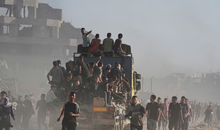
EU: Israel has agreed to more aid to Gaza
2025-07-10 14:55:19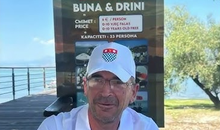

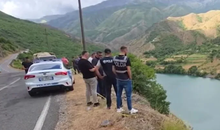
Murder of Reni Dobra, 23-year-old's vehicle pulled from the water
2025-07-10 14:29:23
Trump's tariffs on Brazil raise coffee prices
2025-07-10 14:16:07
Ursula von der Leyen survives no-confidence vote
2025-07-10 14:04:27


Fire in Lezha, flames near electrical substation
2025-07-10 13:32:24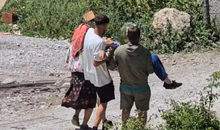
Residents clash with police in Theth, a woman faints
2025-07-10 13:24:38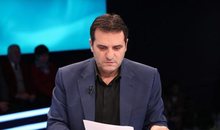
"Rama and Xanun"
2025-07-10 13:15:46

Zodiac signs most likely to get divorced in July 2025
2025-07-10 12:45:51
A scapegoat for an illegitimate Republic
2025-07-10 12:35:02
"He has devastated his own nation"/ Berisha: Rama imprisons his opponents!
2025-07-10 12:26:54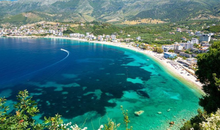

Albanian man injured with knife in Italy
2025-07-10 12:08:55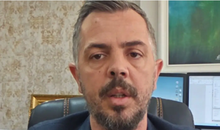
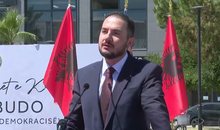


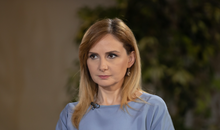
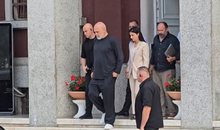
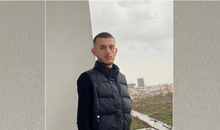
23-year-old in Mat drowned with rope, 4 suspects are being held
2025-07-10 10:58:53
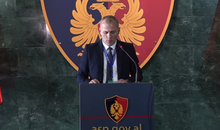
After the dismissals, the new director of the Shkodra Police is appointed
2025-07-10 10:30:10
BIRN: Rama's action for public spaces, a repeated spectacle
2025-07-10 10:29:11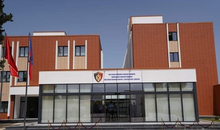
Action in Theth, Shkodra Police leaders dismissed
2025-07-10 10:16:28
Fatal accident on the Tirana-Durres highway
2025-07-10 10:01:58
The incinerator does not exist, but the government continues to increase funds
2025-07-10 09:51:45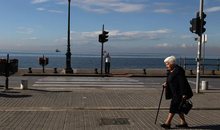
Albania is aging at a rapid pace! 30% of the population is over 60 years old
2025-07-10 09:46:23
End of an era, Modric says 'goodbye' to Real Madrid
2025-07-10 09:36:09
Mount Dukat has been on fire for 6 days, residents request air intervention
2025-07-10 09:27:24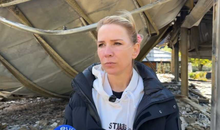

"Poverty on the rise"/ DW: Many people in Germany are not getting paid
2025-07-10 09:08:06
Horoscope, what do the stars have in store for you today?
2025-07-10 08:51:59
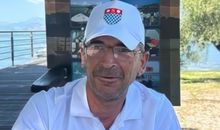
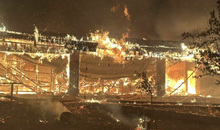
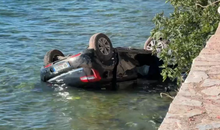

The scorching heat returns, the thermometer climbs to 40°C
2025-07-10 07:58:52
Morning Post/ In 2 lines: What mattered yesterday in Albania
2025-07-10 07:46:35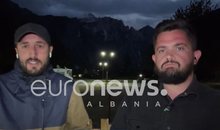
Tourist operator in Theth: They are demolishing our houses without warning
2025-07-09 22:54:57

Trump and Israeli commander warn: Gaza ceasefire could be near
2025-07-09 22:13:21
Fire in Elbasan Landfill, pedagogue: It is a cancer and environmental crime
2025-07-09 21:54:47
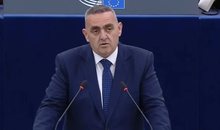

Dangerous summer, number of snake bites increases
2025-07-09 21:22:13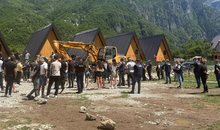
Berisha appeals again: Stop state terror against the residents of Theth!
2025-07-09 21:15:36
'Kissing disease' virus linked to several forms of cancer
2025-07-09 21:04:44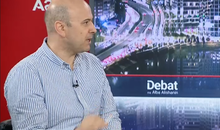
Malltezi confesses after release: Justice has become a political weapon
2025-07-09 20:51:48
Vokshi: Albania's EU integration has stalled due to lack of free elections
2025-07-09 20:37:21